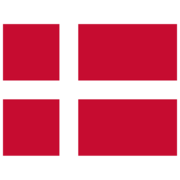Fiscal subject related
Denmark’s Nationalbank has published new recommendations to help citizens and businesses stay prepared if common payment systems fail. The move comes after recent disruptions, including the Nets outage and major power failures in southern Europe, which showed how vulnerable electronic payments can be when systems go offline.
But recent events highlighted the need for citizens and retailers to be ready to use alternative payment methods, especially offline card payments.
In Denmark, payment cards are the most common way to pay. However, if systems go down, offline card payments allow customers to continue paying without an internet connection.
To use this option, both merchants and customers must be prepared:
- Shops must activate offline mode on their payment terminals.
- Staff must know how to process such transactions.
- Customers must carry their physical card and know their PIN code.
For the first time, the National Bank has issued detailed guidance for retailers. Businesses are encouraged to:
-
Plan for disruptions, such as power or internet outages, and ensure multiple payment options, card, bank transfer, and cash, are available.
-
Enable offline card payments, allowing customers to pay even when systems fail.
-
Train staff on what to do during payment system disruptions.
Ulrik Nødgaard noted that over 80% of Danes already have a card that can function offline if used physically with a PIN. He also encouraged businesses to support offline wallet payments, like Apple Pay and Google Pay, as these are becoming increasingly common.
The National Bank also updated its guidance for individuals, expanding its 2024 recommendations.
Citizens are advised to:
-
Have several payment methods: a physical payment card, cash, and a mobile app such as MobilePay.
-
Hold at least two payment cards from different banks and remember their PINs.
-
Keep a small cash reserve, about DKK 250 per adult in small notes and coins, to make change easier if many people pay in cash.
Danmarks Nationalbank, through the Danish Payments Council, is working with banks, retailers, and payment providers to expand offline payment options.
By the end of 2025, offline payments will be possible nationwide using Dankort, Mastercard, and Visa cards, as well as mobile wallets like Apple Pay and Google Pay, at pharmacies and major supermarket chains.
Other news from Denmark
Denmark: OIOUBL 2.1 Schematron Version 1.16.0.RC Released
 Denmark
Author: Ivana Picajkić
Denmark
Author: Ivana Picajkić
Denmark’s Business Authority has released Schematron version 1.16.0.RC for OIOUBL 2.1, introducing enhanced validation for CO₂ data, stricter currency code enforcement, and overall data quality improvements in e-invoices. The final version is expected by late October 2025, with mandatory implementation set for 27 November 2025 The Danish Business Authority has published Schematron version 1.16.0.R... Read more



Denmark: Proposal to Remove 25% VAT on Fruit and Vegetables
 Denmark
Author: Ivana Picajkić
Denmark
Author: Ivana Picajkić
Denmark’s Conservative Party has proposed removing the 25% VAT on fruit and vegetables to ease household costs and promote healthier diets, though implementation would be delayed due to the complexity of adjusting tax and IT systems. The Conservative Party in Denmark has called for the removal of VAT on fruit and vegetables, arguing that rising grocery costs are putting too much pressure on househ... Read more



Denmark Completes SAF-T 2.0 Consultation; Final Version to be Issued
 Denmark
Author: Ivana Picajkić
Denmark
Author: Ivana Picajkić
Denmark has completed its consultation on SAF-T 2.0, which will require businesses to provide full transaction-level bookkeeping data in a standardized format, with the final version to be issued following review of feedback. Denmark is gradually expanding its e-invoicing and digital accounting rules. Today, businesses that use digital accounting systems must ensure their systems can generate, imp... Read more



Denmark to Abolish VAT on Books from 2026
 Denmark
Author: Ivana Picajkić
Denmark
Author: Ivana Picajkić
Denmark will abolish its 25% VAT on books in 2026 to combat declining reading habits and make literature more affordable, aligning with Norway’s 0% rate. The government expects book prices to fall significantly and will monitor publishers to ensure the tax cut benefits readers. Denmark plans to abolish its 25% VAT on books in 2026, currently the highest rate on books worldwide. The move is part of... Read more



Reminder: Denmark Releases Draft SAF-T 2.0 for Bookkeeping Systems
 Denmark
Author: Ivana Picajkić
Denmark
Author: Ivana Picajkić
The Danish Business Authority has published a draft of SAF-T version 2.0, expanding the reporting requirements for registered digital bookkeeping systems under the Bookkeeping Act. The draft, open for consultation until September 1, 2025, aims to enhance automation in business administration by improving e-invoicing integration and tax reporting. The Danish Business Authority has released a draft... Read more



Denmark Updated VAT Refund Rules for Incorrect Invoicing
 Denmark
Author: Ivana Picajkić
Denmark
Author: Ivana Picajkić
The Danish Tax Administration has updated its rules for correcting wrongly invoiced VAT: suppliers no longer need to prove they will return the VAT to customers, and any refund disputes are now considered private legal matters. However, some conditions still apply, such as the need for a credit note or invoice correction, and in certain cases, buyers may claim VAT refunds directly from the tax aut... Read more


